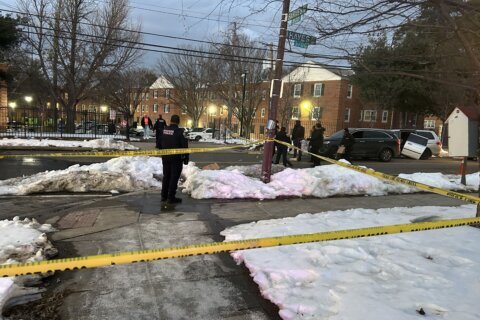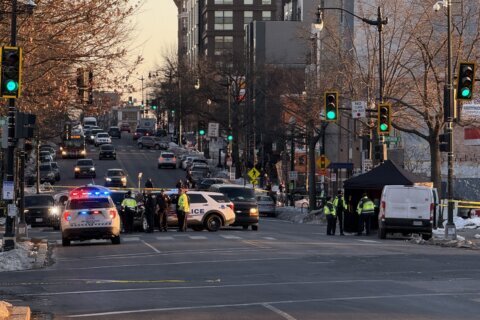A Black US Capitol Police officer said he and his fellow Black officers are still grappling with their harrowing experience on January 6, when they endured insurrectionists hurling racial slurs at them during a physical assault on the iconic building.
“The Black officer struggle was different as in, like I said, we fought against not just people that were, that hated what we represented, but they hate our skin color also,” Harry Dunn told CNN’s Don Lemon on “CNN Tonight.” “That’s just a fact and they used those words to prove that, they showed that they hated us and they hated our skin color.”
Flags, signs and symbols of racist, White supremacist and extremist groups were displayed along with Trump 2020 banners and American flags at the January 6 riot at the US Capitol. Black officers played a key role in defending lawmakers during the attack.
Footage from the insurrection — some of which was released during former President Donald Trump’s impeachment trial — shows Eugene Goodman, another Black Capitol Police officer, redirecting Utah Sen. Mitt Romney from the rioters’ path. Goodman then continued to the first floor to respond to the breach and worked to divert the mob from lawmakers. In another encounter, when a mob of insurrectionists chased him, Goodman also had the presence of mind to lead them away from lawmakers and toward backup officers.
The attack, which killed five people and injured more than 100 police officers, has left Black police officers who defended the Capitol that day reckoning with their experience, Dunn said. While White police officers were also attacked verbally and physically by the insurrectionists, Dunn noted that he and his fellow Black officers had to endure racist barbs — which left some in tears.
“Once I had time to sit down and put it all together, it was just so overwhelming: that here we are giving so much and putting our lives on the line to protect democracy and keep it and we’re being called racial slurs, traitors, and any just weapon that these people could use because they were upset about something,” he said.
“And you know why I guess this is a little harder for me now, because at the time I did my first interview, I didn’t know the pain that a lot of my other colleagues had suffered. They shared them with me.”
Dunn on Wednesday pushed back against assertions that he was playing “the race card” or had a political agenda by discussing the racist elements of the attack.
“I didn’t wake up that morning and want to be called a n*****, plain and simple,” he told Lemon. “I didn’t ask to be called that, so I didn’t bring race into it. I just wanted to do my job.”
He continued, “So I wanted to talk to my coworkers and some of my closest friends and say, this is a moment and we need to grow from this as a country, as a people, as a race, as a profession. There’s so much, so many teachable moments here and I don’t want those to get away.”







